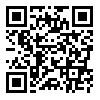BibTeX | RIS | EndNote | Medlars | ProCite | Reference Manager | RefWorks
Send citation to:
URL: http://mededj.ir/article-1-532-en.html
Background and Objective: Patient education is the most important role of nurses in patient-centered care and is part of the responsibility of nurses, but unfortunately, in our country, this issue has not been given much importance. Increasing managers' insight into nurses' attitudes towards patient education will help them in management planning, so this study was conducted to investigate the barriers to patient education from the perspective of nurses in Babol Medical Education Centers.
Methods: The present study was a qualitative study with a contractual content analysis approach conducted with 20 nurses working in hospitals affiliated with Babol University of Medical Sciences in 1403. The sampling method was purposive, the snowball method, and the maximum diversity strategy. Data collection was carried out in the form of semi-structured interviews with open-ended questions and continued until information saturation was reached. Data were analyzed using Granheim and Landman's (2004) content analysis. Data management was performed with MAXQDA 10 software.
Findings: From the data analysis, 11 main categories and 4 subcategories were extracted, including: managerial barriers (lack of support from managers to meet educational needs, educational neglect), barriers related to nurses (lack of time due to high workload, lack of belief in education, lack of sufficient motivation), barriers related to patients (weak knowledge and ignorance of the patient, shaky belief, inappropriate physical and mental condition of the patient), organizational barriers (disproportion between the number of patients and nurses, insufficient equipment, inappropriate environment for education).
Conclusion: The challenges of patient education include managerial, organizational barriers, and barriers related to patients and nurses. Among them, managerial and nursing barriers are felt more tangibly. Therefore, aligning managers with these challenges and improving nurses' educational skills are considered to be the main requirements in order to improve the patient education process.
Received: 2025/04/14 | Accepted: 2025/04/4 | Published: 2025/04/4
| Rights and permissions | |
 |
This work is licensed under a Creative Commons Attribution-NonCommercial 4.0 International License. |

This work is licensed under a Creative Commons Attribution-NonCommercial (CC BY-NC)




